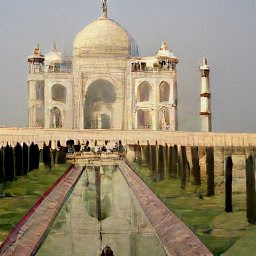Skanda Hindu God of war
Skanda is a Hindu god of war, often depicted as the commander of the army of the gods and the destroyer of evil. He is also known as Kartikeya, Subramanya, Murugan, and Shanmukha. Skanda is considered as the elder son of Lord Shiva and Goddess Parvati. He is worshipped in various forms across India, especially in the South, and is considered to bring courage, victory, and power.
In Hinduism, Skanda is considered as the god of war and a divine warrior who possesses immense physical strength and fighting skills. He is also associated with various other aspects such as protection, fertility, and righteous conduct. Skanda is revered as the patron deity of warriors and is believed to bring success in battles. His festivals, such as Thaipusam and Skanda Sashti, are widely celebrated among the Hindu communities and involve elaborate rituals, devotional songs, and processions. In art, Skanda is often depicted holding weapons such as a bow and arrows, a spear, and a sceptre, and riding on a peacock.
Birth: According to Hindu mythology, Skanda was born from the fire that emerged when Lord Shiva fired his third eye.
Six Faces: Skanda is often depicted with six faces, symbolizing his ability to see and protect the world in all directions.
Consort: Skanda is married to Devasena, the daughter of the god of wealth, Kubera.
Victory over Evil: Skanda is known for defeating the demon Taraka and saving the world from darkness and evil.
Pilgrimage Centers: There are many pilgrimage centers dedicated to Skanda across India, such as Palani in Tamil Nadu, Kukke Subramanya in Karnataka, and Pazhamudircholai in Tamil Nadu.
Warrior Monks: Skanda is the patron deity of the warriors of the Astras warrior monastic order.
Mount Kailash: Skanda is believed to reside at Mount Kailash along with his parents, Lord Shiva and Goddess Parvati.
Weapon of Choice: Skanda is often depicted wielding a spear called "Vel".
Guardian of Children: Skanda is considered as the protector of children and is worshipped for their well-being.
Role in Cosmic Order: Skanda is believed to play a role in maintaining the cosmic order and balance.
Warrior God in Buddhism: Skanda is also revered as a warrior god in Buddhism and is known as "Guanyin" in China and "Kanonge" in Japan.
Significance in Tamil Culture: In Tamil Nadu, Skanda is considered as the patron deity of the Tamils and is revered as the god of the Tamil language.
Seven Hills: Skanda is associated with seven hills, which are considered sacred and are the site of many pilgrimage centers dedicated to him.
Protector of Animals: Skanda is also considered as the protector of animals, especially peacocks, which are sacred to him.

Comments
Post a Comment